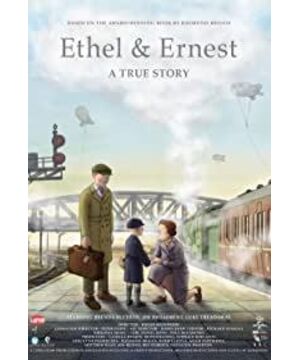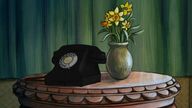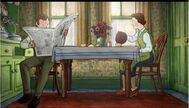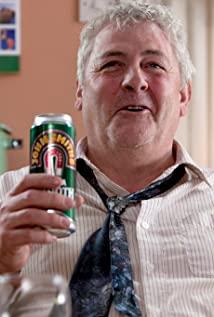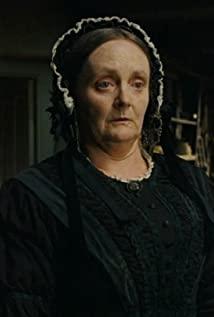The English name of "London Family" is Ethel & Ernest, which is also the name of the two protagonists in the film. This hand-drawn animated film is based on a picture book drawn by Raymond in the real life of his parents. It tells the story of his parents, Ethel and Ernest, an ordinary British couple who met and fell in love in early 1928 to their death in 1971.
What is a good movie? Is it the constant reversal of the unexpected plot, the love-hate relationship between the characters, or the dramatic conflict, the special effects scenes with great visual impact? But "London Family" can't satisfy any of the above points, there is no exciting plot, and the light hand-painted watercolor can't outline the big scene of thunder, and the two protagonists are not earth-shattering big shots, both family and career seem to be mediocre. Strange, they never quarreled between them. From the beginning to the end of the film, there is not even any emotional rendering, and there is no conflict. It is like a faithful recorder, recording the trivial daily life of this couple together for 43 years. It took two hours to slowly flow through that ordinary, simple but so moving time.
The heroine Ethel used to be a maid. One day in 1928, Ethel stood by the second-floor window shaking off the dust on the rag. Ernest passed downstairs on a bicycle with a cigarette in his mouth. Mistaking Ethel as greeting him, he took off his hat with a smile and waved at Ethel.
From that day on, Ethel always stood by the window, opened the window as soon as he saw Ernest, and pretended to raise dust, and Ernest always waved, a silent tacit understanding was already there between the two. Until one day, when Ethel opened the window and saw no one, he felt lost for a while, but Ernest miraculously appeared in front of the door with flowers in his hand, and he said that I wanted to introduce myself. Shake the rag so many times, my name is Ernest.
—My name is Ethel.
- Ethel, would you like to go to the movies with me?
They walked together in the rain and looked at the dimly lit ballroom with admiration; they moved into a new house with a 25-year loan, filling the empty home little by little; they welcomed the birth of their son together and experienced a terrible war together. , enduring the partings brought by the war and the "rebellion" of his son; discussing political parties together, and occasionally complaining about life. They shared each other's lives together, but there was only one thing they never did together - arguing.
This is really a good story. If a biographer were to write a biography of them someday, it would be only a short paragraph that would rack his brains: Ernest and Ethel were married in 1928, and Ernest was a A conscientious milkman, he was a firefighter during World War II. Ethel was mainly responsible for housework. The two had a child. He was admitted to grammar school but insisted on studying art, and later became a comic master.
There is no doubt that the lives of Ethel and Ernest are not successful in the eyes of the world. They are ordinary and ordinary, with no ups and downs in life, and no heart-piercing joys and sorrows. They are like us passing by on the street. Strangers we have passed, maybe ourselves. But they are also extraordinary, they still find their own happiness in the ordinary time day after day.
People always seem to be in pursuit of thrilling and unforgettable, as if they have never experienced the despair in the middle of the night, the grand joy of success, or the deep emotions, they are not in this world. In this era, the channels for obtaining information are more and more abundant, and we have learned more and more legendary characters. Those unborn geniuses seem to be within reach through the screen, and no one can suppress the urge to become them. But perhaps after a lifetime, we can't leave a deep impression in history, because ordinary is the normal state of life.
But who says ordinary has no moving power? Who says an ordinary life isn't worth living? Like Ethel and Ernest, they cured our anxiety about not keeping up with the times, and told us that there is happiness in ordinary life, and ordinary life is also worthy of being loved.
View more about Ethel & Ernest reviews


